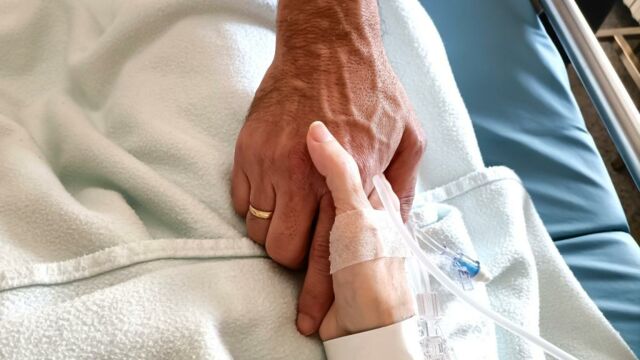Death is a fascinating thing that most of us are pretty afraid of facing. In films, it is often portrayed as a violent incident or as a heart-wrenchingly poignant moment. The truth is, most of us die in a pretty bog-standard fashion. Thankfully, there are studies on what happens so we can prepare ourselves for the big departure without having to actually die first.
Discover our latest podcast
We’ve already told you about the doctor who has studied over 5000 near-death experiences and is ‘certain’ there is an afterlife. Well, one palliative-care specialist at Stanford University has put the same energy into studying the process of dying. His name is James Hallenbeck, and this is what he has revealed about death.
You lose your speech first
Hallenbeck wrote a book called Palliative Care Perspectives, and in that book he details the way in which the body breaks down when you are dying. We already know about this creepy phenomenon that nearly everyone experiences when dying, but Hallenbeck’s book really focuses on the biological aspects of our demise.
The expert details how most people stop feeling hungry or thirsty when their body knows it is on the way out. The first sense they tend to lose is speech: as their bodies shut down, it becomes difficult to produce sound. Often, dying people will spend more time asleep or in an unconscious state.
The next steps
Hallenbeck explains that vision is the next sense to go. A person’s eyesight begins to fail, and they tend to only be able to catch sight of what is nearby. As these senses start to fade, so does the person’s presence in this Earthly realm. Sometimes this change has a physical manifestation too and you can see that their eyes glaze over.
The sense of touch hangs around for a little longer. A dying person, as they are ebbing in and out of consciousness, may well be aware of a loved one’s hand on theirs. However, as a more comatose state kicks in, they lose this sense. Though that may be tough for those left behind to accept, it means that they stop feeling any pain.
Hearing is last to go, as people may be unresponsive but mentally still present. Scientific reports written by neuroscientists at the University of British Columbia showed that the electrical activity in the brain of a dying hospice patient was similar to that of a young, healthy person. The reports therefore concluded that some people can hear right up until their last few moments on this Earth.
Read more:
⋙ This man who came back to life after falling off a cliff was stunned by who he met in heaven
⋙ World’s oldest man, Venezuelan Juan Vicente Perez Mora, dies aged 114
⋙ The ‘death stare’: Nurse explains phenomenon that happens when a person is about to die
Sources used:
Metro: You will lose your senses in specific order when you’re about to die, expert reveals
Insider: I've studied more than 5,000 near death experiences. My research has convinced me without a doubt that there's life after death.















